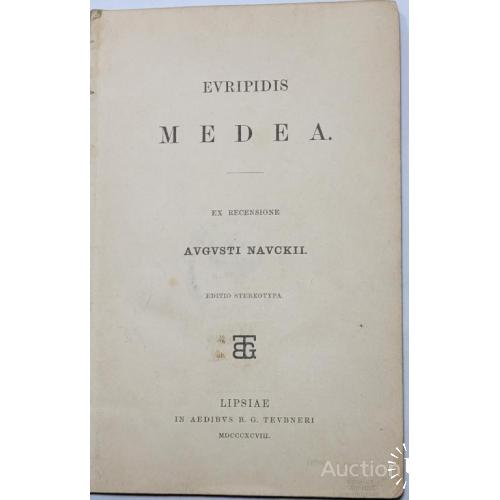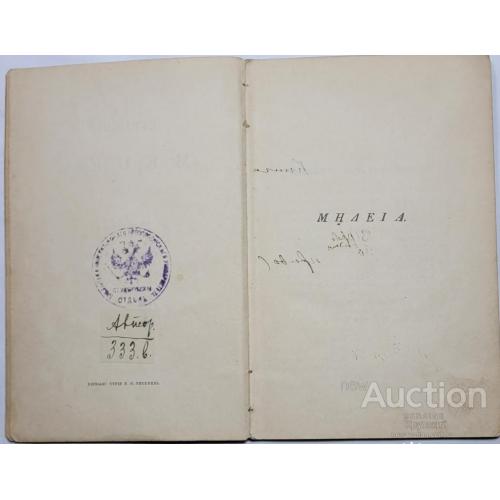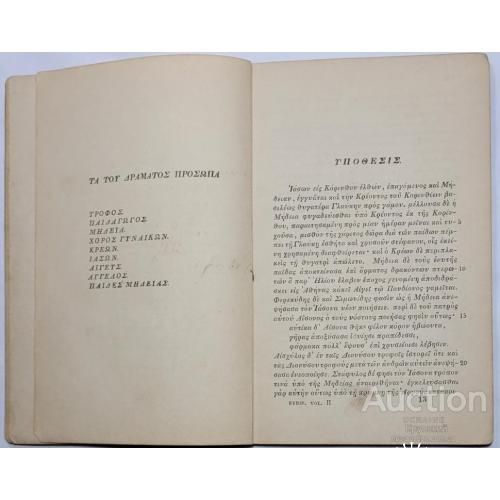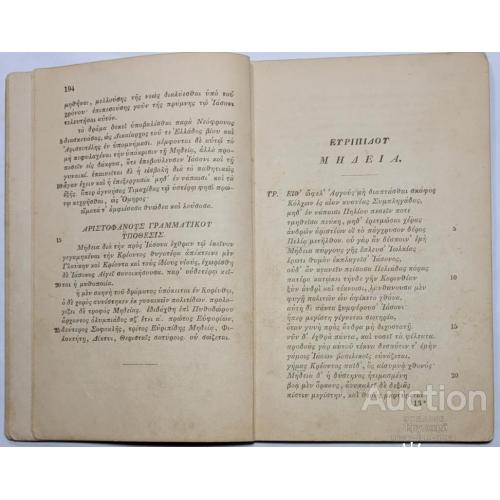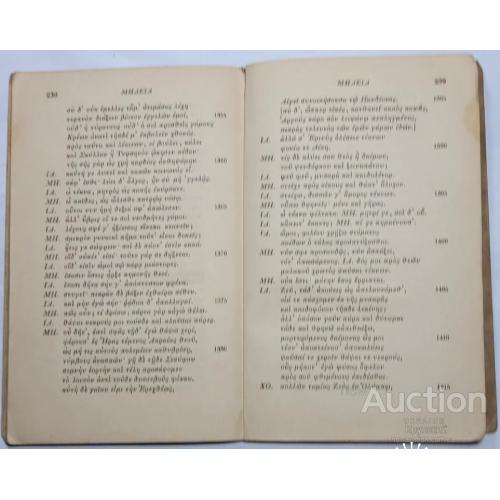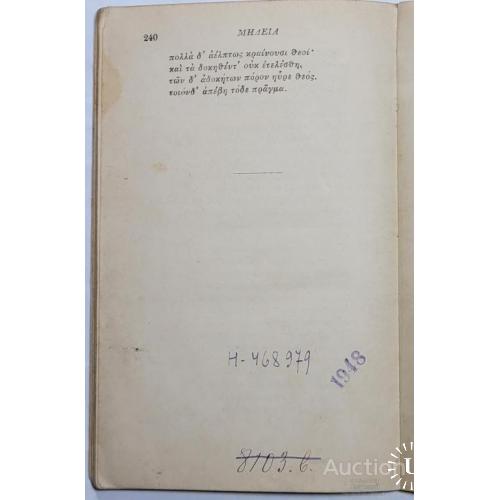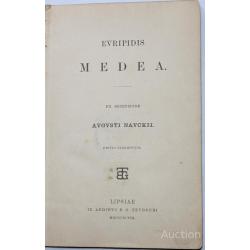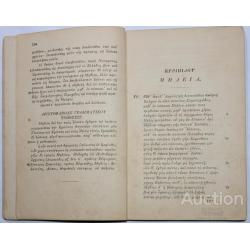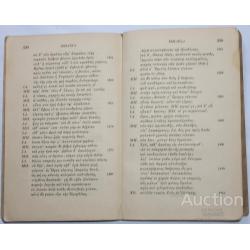Параметри:
Палітурка : тверда
Рік видання : 1868
Мова видання : іноземна
| Medea | |
|---|---|

Poster by Alfons
Mucha for performance by Sarah
Bernhardt at the Théâtre de la Renaissance,
Paris (1898)
|
|
| Written by | Euripides |
| Chorus | Corinthian Women |
| Characters | Medea Nurse Tutor Aegeus Creon Jason Messenger Medea's two children |
| Date premiered | 431 BC |
| Place premiered | Athens |
| Original language | Ancient Greek |
| Genre | Tragedy |
| Setting | Before Medea's house in Corinth |
Medea (Ancient Greek: Μήδεια, Mēdeia) is an ancient Greek tragedy written by Euripides, based upon the myth of Jason and Medea and first produced in 431 BC. The plot centers on the actions of Medea, a former princess of the kingdom of Colchis, and the wife of Jason; she finds her position in the Greek world threatened as Jason leaves her for a Greek princess of Corinth. Medea takes vengeance on Jason by murdering his new wife as well as her own two sons, after which she escapes to Athens to start a new life.
Euripides' play has been explored and interpreted by playwrights across the centuries and the world in a variety of ways, offering political, psychoanalytical, feminist, among many other original readings of Medea, Jason and the core themes of the play.
Medea, along with three other plays, earned Euripides third prize in the City Dionysia. Some believe that this indicates a poor reception, but "the competition that year was extraordinarily keen"; Sophocles, often winning first prize, came second. The play was rediscovered with Rome's Augustan drama; again in the 16th-century; then remained part of the tragedic repertoire, becoming a classic of the Western canon, and the most frequently performed Greek tragedy.
It is prohibited to indicate and request contact and payment information. Such messages will be deleted by the auction administrator.
To purchase a lot, use the “Buy/Place a Bid” button.

